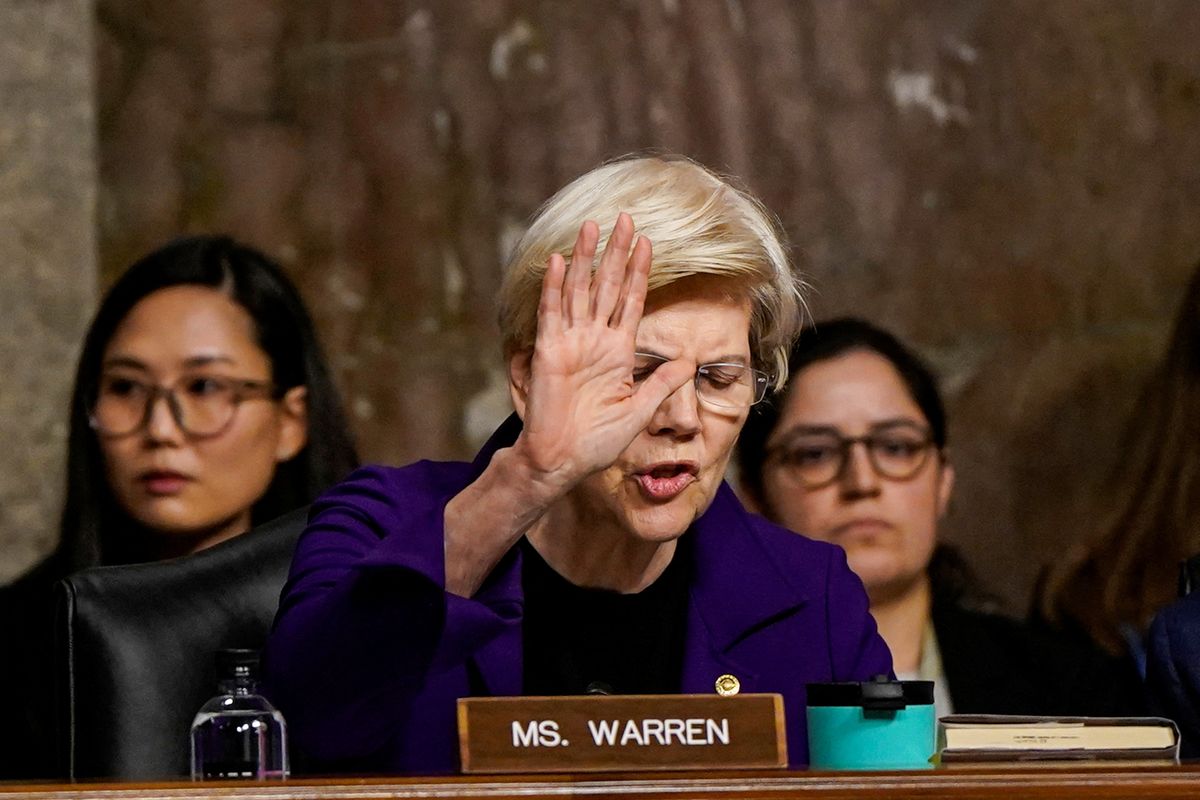
Federal Reserve Chair Jerome Powell was grilled Wednesday by Sen. Elizabeth Warren (D-MA) for what she called an “outrageous giveaway” to banks amid rising costs and stagnant wages for working-class Americans.
In 2018, the Federal Reserve imposed an asset cap on Wells Fargo, capping the company’s permitted assets to a value of $1.95 trillion, after the bank engaged in a number of widespread illegal practices, including secretly opening up millions of unauthorized bank and credit card accounts for customers without their consent to meet sales targets.
Yet despite the bank continuing to engage in illegal practices in recent years and months, the Fed voted this month to lift the bank’s asset cap, something Warren warned would increase the likelihood of another recession akin to the 2008 financial crisis.
“Less than two weeks ago, the Fed Board decided to lift Wells Fargo’s asset cap; you couldn’t even wait until Wells managed to make it one whole year without being caught in a major financial scandal,” Warren said.
“In just the past six months, Wells has been caught and confessed to cheating its customers, cheating its investors, and cheating its workers, the trifecta. For the Fed to give them a gold star and tell Wells it’s okay to expand the number of customers, investors and employees that it can cheat is an outrageous giveaway to one of Wall Street’s most derelict banks.”
Warren framed her critique of the Fed’s policy under the backdrop of President Donald Trump’s One Big Beautiful Bill Act, a sweeping budget reconciliation package that is projected to increase the national debt by $4.2 trillion over ten years, largely due to permanently extending what have been dubbed the Trump tax cuts, which are expected to primarily benefit the top 20% of earners.
“And today, you will leave this hearing and go directly to a meeting where the Fed is expected to vote to lower capital requirements for JP Morgan, Goldman Sachs, and the other too-big-to-fail banks,” she continued.
“At a time when the economic data are flashing red, these short-sighted changes will increase the likelihood that these megabanks, once again, tank the economy and then come back here and beg Congress for bailouts when their risky bets go bust. To sum up Trump’s economic agenda, it’s chaos and pain for the middle class, and even more profits for the powerful.”
Warren pressed Powell on whether Trump’s fiscal policy – extending tax breaks enjoyed primarily by the wealthiest of Americans, imposing unpredictable tariffs and cutting social services like food assistance and Medicaid – could negatively impact inflation.
“Theoretically, sure, fiscal policy can add to inflation, but again, that’s really not something we comment on, we try to stay away from fiscal policy,” Powell said.
“I understand you don’t comment on it, but I do appreciate your acknowledgement of the math here,” Warren fired back.




